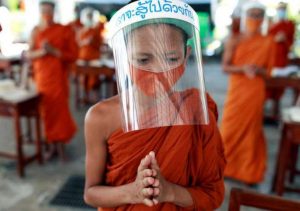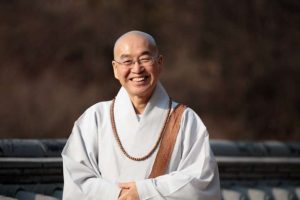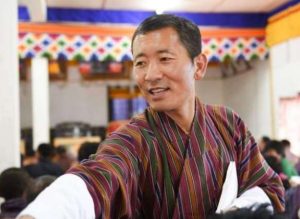In our previous article for this column, we looked at how Master Shandao states at the beginning of In Praise of Pratyutpanna:
I humbly tell all Pure Land aspirants: You should feel deep shame and remorse! Shakyamuni Buddha is actually your kind and compassionate parent who provides various expedient teachings in order to arouse your unsurpassed faith.
He further says:
Moreover, he speaks of various expedient teachings, not just one, because ordinary beings have upside-down views. However, if we can follow any one of his teachings and practice accordingly, they can see the Buddha and be born in the Land of Bliss.
What is it that prevents us from following and practicing any of Shakyamuni’s 84,000 expedient teachings spoken in the sutras? What prevents us from seeing the Buddha, from being reborn in the Land of Bliss, or from arousing the unsurpassed faith?
We are living in a conditioned realm of birth and death
Shakyamuni Buddha states in the Nirvana Sutra that a Buddha dwells in an unconditioned realm of nirvana. Nirvana has four virtues: permanence, joy, self, and purity, known as the “Four Virtues of Nirvana.” Nirvana is a Sanskrit word that literally means “extinguishing” and implies “no-birth and no-death.”
Nirvana is an abstract concept for all of us in this world because we are living in a conditioned realm of birth and death. This means that all worldly phenomena arise when the appropriate conditions come together and dissipate when the same conditions cease or disperse.
In Buddhism, the first Universal Truth states: All phenomena are impermanent. All phenomena change according to conditions, as mentioned above. They are interdependent and exist in a state of constant flux. The Second Universal Truth states: There is No-Self. This means there is no independent “self” existing as an essential, unchanging core of identity. The ego is as impermanent and subject to conditional change as all other worldly phenomena.
In our world, birth and death, also known as “impermanence,” are the root cause of suffering, and our attachment to the concept of a “self” is perhaps the greatest of all sufferings. The conditions that lead to suffering are so deeply rooted in us that people arbitrarily give names in their languages to the forms that they see and to the concepts that they think.
People also create a framework of space and time with the “self” as their central point of reference. This is an attempt to find existential security within a coherent story—even a tragic or depressing story. In this way, people take impermanence as permanence, suffering as joy, no-self as self, and purity as impurity.
These are the four upside-down views that obstruct us from seeing our original nature, called self-nature. It is also known as buddha-nature, because a buddha is an enlightened being who clears all obstructions with wisdom and dwells in the stillness of self-nature (in the state of nirvana).
The Third Universal Truth states: Stillness is nirvana. Nirvana is the state of eternal perfection that all Buddhists pursue to end suffering and attain ultimate joy or liberation. Actually, nirvana is not confined to Buddhism but represents the deepest aspiration of all humankind. To pursue happiness by ending suffering is the intrinsic nature of all human beings.
The Four Virtues of Nirvana
The Four Virtues of Nirvana are permanence, joy, self, and purity.
“Permanence” is a state of timeless being that is eternal and transcends all temporal and spatial concepts. “Joy” refers to the great joy of nirvana, which is different from any conditional joy arising in relative opposition to suffering. “Self” is a state of independent and free existence, unconditioned and natural. “Purity” is uncontaminated with no attachment, no ignorance, no discriminative thoughts, and no notions of self, others, sentient beings, and birth or death (arising and ceasing). Purity is fundamental in Buddhism. Only a buddha is truly pure in terms of mind and body and the land where a buddha dwells.
Having considered the Four Virtues of Nirvana, we know that it is almost impossible for ordinary beings to understand and practice these virtues through deep meditation and intensive cultivation in daily life. Achieving them is absolutely beyond us, particularly without the guidance of a fully enlightened buddha!
Our wish to avoid suffering and to seek happiness in the mundane world is wrong
We strive to avoid suffering and to seek happiness, but unfortunately we jump from one suffering to another. This is because the “happiness” that we seek is obtained from the “suffering” of others. Thus, we commit more karmic offenses and suffer more.
Our wish to avoid suffering and seek happiness is wrong in the mundane world because our views are wrong. Shakyamuni Buddha is so compassionate that he takes pity on us. He urges us to take refuge in the active, omniscient, and all-compassionate buddha called Amitabha, and to seek rebirth in his Pure Land.
Amitabha’s Land of Bliss is an unconditioned realm of nirvana. Because a buddha’s land and body are manifestations of the buddha-mind, both land and body are pure because the Buddha’s mind is pure. Similarly, if Amitabha’s Land of Bliss (circumstantial reward) is pure, the mind and body (direct reward) of all living beings are pure as well.
One reborn in that land, all living beings are imbued with the Four Virtues of Nirvana. As stated by Shakyamuni Buddha, they enjoy great peace and joy with infinite life, the same as Amitabha Buddha. Anyone who wishes to be reborn in that land need only practice the exclusive recitation of Amitabha’s Name for the remainder of this life.
So one ought to know that rebirth in the Pure Land is not an expedient means nor steppingstone to enter nirvana, but is the end of all suffering, particularly the suffering of reincarnation, forever. There, one attains ultimate liberation and eternal happiness.
Master Shandao says, “As said in the Great Sutra:
With recourse to Amitabha’s great karmic vow power as augmentative cause, all good and evil ordinary beings can be reborn in the Land of Bliss and see the Buddha.
They will be received and welcomed by Amitabha Buddha and a multitude of sacred beings near the end of life.
Related features from BDG
A Wake-Up Call to all Buddhists
How Can Buddhas Deliver All Sentient Beings, Including Us, to Buddhahood?
Why are Two Buddhas Needed to Deliver All Sentient Beings?













Along with the Sanskrit word “Nirvana”, it would be better to use the Pali word “Nibbana”, in the articles. Also in the start of the article, there is a reference about the “previous” article, in this case it would be better to hyperlink the particular post or sharing the link at the end of the article, as a foot note or so.
Namo Amituofo!